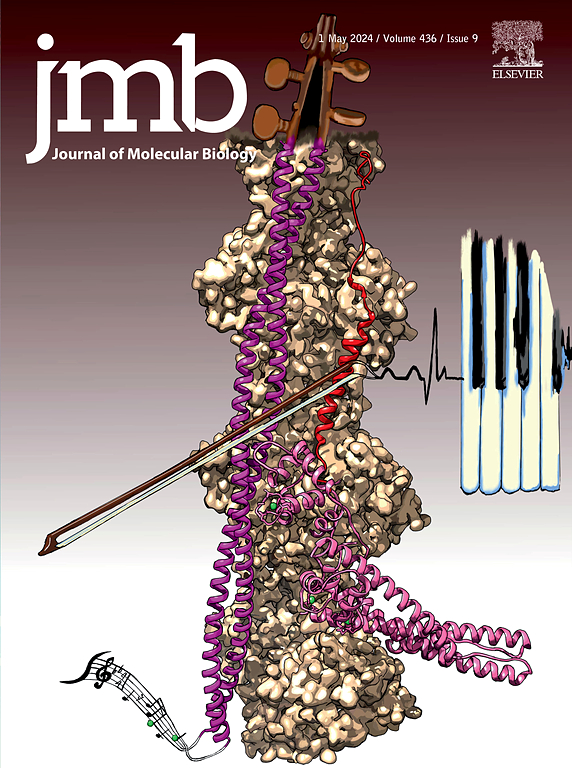A Fluorescent Probe Targeting EGFR for the Stratification of Prostate Cancer Cells
IF 4.5
2区 生物学
Q1 BIOCHEMISTRY & MOLECULAR BIOLOGY
引用次数: 0
Abstract
Effective stratification of cancer patients is critical yet challenging for evaluating therapeutic strategies. In this study, we designed a competitive, modular fluorescent probe targeting the oncogenic epidermal growth factor receptor (EGFR) kinase. This probe specifically inhibits EGFR kinase activity in a dose-dependent manner, selectively labels EGFR-overexpressing cells in flow cytometry, and sensitively binds to EGFR oncogenic mutants. Utilizing probe-based cytometry to subtype urine samples from prostate cancer patients, we discovered that samples with overexpressed wild-type EGFR did not respond sensitively to the probe, aligning with findings from an early multi-center clinical study. Notably, one sample with low EGFR expression exhibited the highest sensitivity to the probe, leading to the identification of three non-characterized mutations, including the activating mutation V745M, on the EGFR kinase. This case involved a tumor that had progressed to the castration-resistant metastatic stage.

一种靶向EGFR的前列腺癌细胞分层荧光探针。
癌症患者的有效分层对于评估治疗策略至关重要,但也具有挑战性。在这项研究中,我们设计了一个竞争性的模块化荧光探针,靶向致癌的表皮生长因子受体(EGFR)激酶。该探针以剂量依赖的方式特异性抑制EGFR激酶活性,在流式细胞术中选择性地标记EGFR过表达的细胞,并敏感地结合EGFR致癌突变体。利用基于探针的细胞术对前列腺癌患者的尿液样本进行亚型分析,我们发现野生型EGFR过表达的样本对探针没有敏感反应,这与早期多中心临床研究的结果一致。值得注意的是,一个低EGFR表达的样本对探针表现出最高的敏感性,从而鉴定出EGFR激酶上的三个非特征突变,包括激活突变V745M。这个病例涉及肿瘤已经进展到去势抵抗转移阶段。
本文章由计算机程序翻译,如有差异,请以英文原文为准。
求助全文
约1分钟内获得全文
求助全文
来源期刊

Journal of Molecular Biology
生物-生化与分子生物学
CiteScore
11.30
自引率
1.80%
发文量
412
审稿时长
28 days
期刊介绍:
Journal of Molecular Biology (JMB) provides high quality, comprehensive and broad coverage in all areas of molecular biology. The journal publishes original scientific research papers that provide mechanistic and functional insights and report a significant advance to the field. The journal encourages the submission of multidisciplinary studies that use complementary experimental and computational approaches to address challenging biological questions.
Research areas include but are not limited to: Biomolecular interactions, signaling networks, systems biology; Cell cycle, cell growth, cell differentiation; Cell death, autophagy; Cell signaling and regulation; Chemical biology; Computational biology, in combination with experimental studies; DNA replication, repair, and recombination; Development, regenerative biology, mechanistic and functional studies of stem cells; Epigenetics, chromatin structure and function; Gene expression; Membrane processes, cell surface proteins and cell-cell interactions; Methodological advances, both experimental and theoretical, including databases; Microbiology, virology, and interactions with the host or environment; Microbiota mechanistic and functional studies; Nuclear organization; Post-translational modifications, proteomics; Processing and function of biologically important macromolecules and complexes; Molecular basis of disease; RNA processing, structure and functions of non-coding RNAs, transcription; Sorting, spatiotemporal organization, trafficking; Structural biology; Synthetic biology; Translation, protein folding, chaperones, protein degradation and quality control.
 求助内容:
求助内容: 应助结果提醒方式:
应助结果提醒方式:


